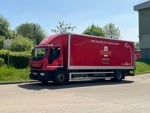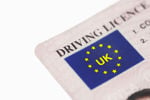According to its estimates, the number would rocket from about 1.74 million to nearly two million taxpaying company car drivers. But research by ARVAL PHH suggests that 34% of firms would dump some of their company cars. The survey backs up research by PricewaterhouseCoopers that revealed a £100 million hole could be blown in the Government's tax predictions as the number of company car drivers reduces by 100,000 after the introduction of the tax.
The confusion centres around drivers' reaction to the new tax, which is based on the list prices of a company car and its emissions of CO2, compared to the current system which charges according to list price and provides discounts for high-mileage drivers. Experts are divided over whether drivers will opt out of company cars so they can continue driving large-engined vehicles without paying high taxes, or whether the promise of low taxes for driving fuel-efficient cars will encourage more drivers to take up company cars.
Jeremy Hay, ARVAL PHH's managing director, said: 'The amount of tax paid by employers and employees alike is set to continue rising and a third of companies surveyed have clearly had enough.' The survey also showed that only 17% of company car drivers would replace their vehicles with more fuel-efficient models under the new tax regime and only 6% of firms have shown any interest in alternative fuels. Only 8% of firms have encouraged employees to work from home.
The survey of 201 managing directors, finance directors and senior managers of companies with turnovers of between £1 million and £100 million, showed 48% of companies had done nothing to clean up vehicle emissions in the past year. Mary Braim, Inland Revenue policy adviser on transport benefits, said: 'We have seen nothing that would lead to us changing our estimates on the increase in the number of company cars.'
















Login to comment
Comments
No comments have been made yet.